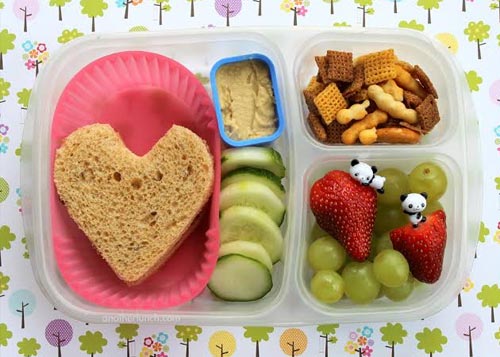Staying hydrated is very important. My parents, especially my mother, would rant about how I don’t drink enough water in a day. Being the rebellious teenager with a know-all attitude, I did nothing about it. It was only after I was dehydrated to the extent that I was bed-ridden out of fatigue and given medication to revive my stamina that I realised the importance of drinking water.
Ideally, we should be drinking about 6-8 full glasses of water on a daily basis. While drinking water is an essential and sure-shot way to stay hydrated, we should also eat water-rich foods on a daily basis. In fact, 20% of water intake for the body should come from food.
Many locally grown fruits and vegetables are examples of hydrating foods. You need not go out of your way to find strawberries or peaches to eat. Simple fruits such as watermelons and oranges available with a local vendor should suffice.
I’ve listed 7 of the most effective hydrating foods that come with additional nutrients that will help keep you healthy.
1. Watermelon
The number 1 pick when it comes to hydrating foods is watermelon. They contain 92% water and are rich in fiber, vitamin A, vitamin C, magnesium, and antioxidants.
Due to their high water content, watermelons have low caloric density. This means that a large bowl of watermelon will contain only a few calories. It is effective in reducing weight as it reduces your appetite.
Watermelons contain various antioxidants, one of them being lycopene, which reduces the possibility of oxidative damage of cells – thereby reducing the risk of heart disease and diabetes to an extent.

Benefit highlights
- 92% water content
- Rich in fiber, vitamins, magnesium, and antioxidants
- Low caloric density
- Helps reduce risk of heart disease and cancer
2. Oranges
Orange is yet another fruit that has high water content – about 88%, with additional nutrients such as fiber, vitamin C, potassium, and antioxidants.
Oranges, like watermelons, helps keep the appetite under control by promoting a feeling of fullness.
Antioxidants, such as flavonoids, present in oranges reduce inflammation and thus prevent cell damage.
An added benefit of oranges is that they contain citric acid which can bind with calcium oxalate and help flush it out of the body. Calcium oxalate is a stone-forming salt that could cause kidney stones. So eating citrus fruits such as oranges helps prevent kidney stones.

Benefit highlights
- 88% water content
- Rich in fiber, vitamins, potassium, and antioxidants
- Low caloric density
- Helps prevent kidney stones
3. Mangoes
I believe nature has its way of telling us what to eat during each season. Mangoes are the most sought-after fruits in the summer and they are perfect hydrating foods. They contain 83% water, along with fiber, vitamin A, vitamin C, and potassium.
In the case of mangoes, too, the caloric content is low due to the high water content. So you can enjoy deliciously sweet mangoes without having to worry about calories.
The soluble fiber present in mangoes dissolves easily in water and binds with cholesterol and helps get rid of it through waste.
The fiber also helps in keeping a check on the blood glucose level. The fiber slows the process of gastric emptying from the body and hence balances the glucose level.

Benefit highlights
- 83% water content
- Rich in fiber, vitamins, and potassium
- Low caloric density
- Mantains blood glucose level
4. Lettuce
Lettuce, usually used abundantly in salads, has 96% water content along with fiber, folate, vitamin A, and vitamin K.
Eating lettuce makes you feel full, thereby reducing your appetite. This way, it helps you reduce weight-gain gradually and promote fitness.
The folate present in lettuce is very good for pregnant women as it prevents neural tube birth defects in the newborn.
The vitamins in the leaves keep your bones and overall immune system healthy.

Benefit highlights
- 96% water content
- Rich in fiber, folate, and vitamins
- Low caloric density
- Keeps bones and immune system healthy
5. Cucumbers
Cucumbers are packed with 95% of water in addition to health-promoting nutrients such as fiber, vitamin C, vitamin K, magnesium, and potassium.
Cucumbers, like the other water-rich foods mentioned earlier, have low caloric content. So you could eat plenty of cucumbers, not gain weight and in fact, reduce weight.
Oxidative stress caused by free radicals could be one of the causes of cancer, heart disease, lung disease, and autoimmune disease. The antioxidants present in cucumbers help prevent oxidative stress in the body.

Benefit highlights
- 95% water content
- Rich in fiber, vitamins, magnesium, and potassium
- Low caloric content
- Prevents the risk of cancer, heart and lung disease
Include some or all of these foods in your everyday diets. It’s best to have fresh fruits early in the morning before breakfast.
You could have the watermelon, lettuce, as well as cucumbers as a salad with some seasoning.
Which of these hydrating foods do you eat regularly? Share other water-rich foods you know of, in the comments section below.










One Response